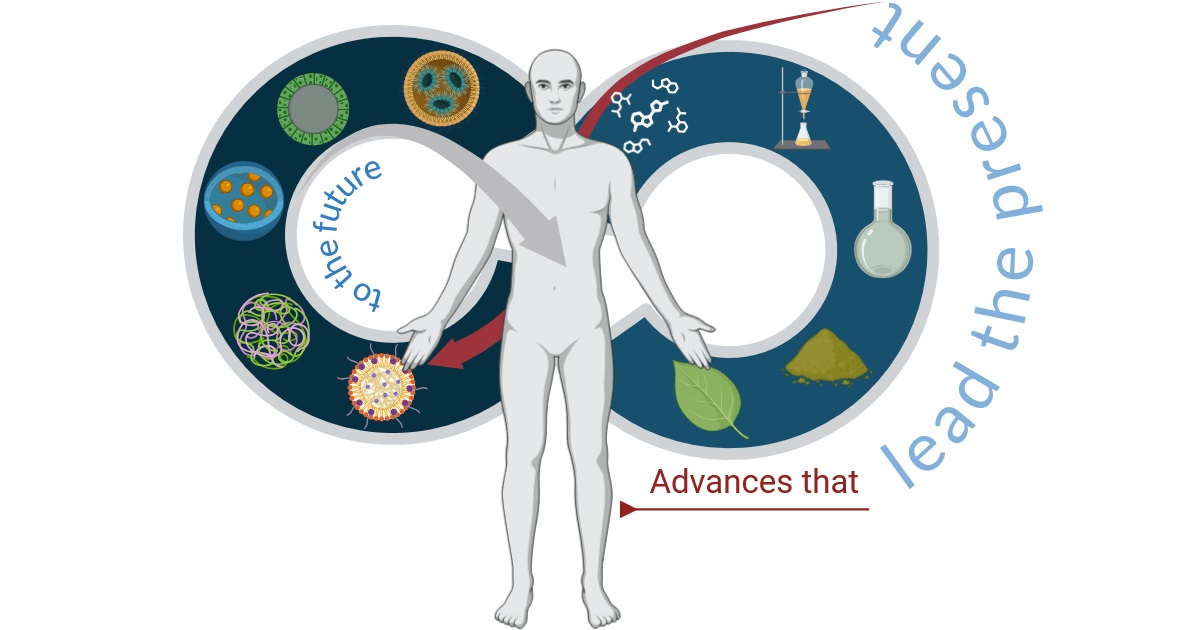Advanced Drug Delivery Systems for Natural Products
A special issue of Pharmaceutics (ISSN 1999-4923). This special issue belongs to the section "Drug Delivery and Controlled Release".
Deadline for manuscript submissions: 31 May 2026 | Viewed by 1609

Special Issue Editors
Interests: emulsion polymerization; drug stability; pharmaceutical nanotechnology; pharmaceutical research and development; pharmacokinetics
Special Issues, Collections and Topics in MDPI journals
Interests: vesicular systems; niosomes; stimuli-sensitive nanocarriers; inorganic nanoparticles
Special Issues, Collections and Topics in MDPI journals
Special Issue Information
Dear Colleagues,
Even in the era of technological advancement, natural products play a pivotal role in drug development, offering a vast repertoire of bioactive molecules with diverse pharmacological properties. However, their clinical potential is often constrained by their poor solubility and permeability, low bioavailability, rapid metabolism, and instability.
In recent decades, interdisciplinary efforts spanning chemistry, physics, biology, mathematics, technology, and biomedical sciences have driven the successful development of advanced drug delivery systems (ADDSs). These innovations enable the precise targeting of complex biological sites while ensuring optimal concentrations of bioactive compounds at the right time and for the appropriate duration. Such advancements undoubtedly refine the pharmacokinetic and/or pharmacodynamic profiles of encapsulated natural products. Additionally, patient compliance is enhanced, while safety is improved by administering lower doses, reducing drug exposure, and limiting distribution to non-target tissues, among other benefits. Nevertheless, the development of ADDSs continues to encounter challenges that require further investigation and remain a central focus of intense scientific inquiry.
The Pharmaceutics Special Issue, entitled “Advanced Drug Delivery Systems for Natural Products”, aims to present the latest advancements in this field. We invite all interested researchers to submit their innovative approaches (original research articles or comprehensive reviews), which will contribute to expanding knowledge in this rapidly developing area.
Dr. Velichka Andonova
Dr. Viliana Eduardova Gugleva
Dr. Stanila Stoeva
Guest Editors
Manuscript Submission Information
Manuscripts should be submitted online at www.mdpi.com by registering and logging in to this website. Once you are registered, click here to go to the submission form. Manuscripts can be submitted until the deadline. All submissions that pass pre-check are peer-reviewed. Accepted papers will be published continuously in the journal (as soon as accepted) and will be listed together on the special issue website. Research articles, review articles as well as short communications are invited. For planned papers, a title and short abstract (about 250 words) can be sent to the Editorial Office for assessment.
Submitted manuscripts should not have been published previously, nor be under consideration for publication elsewhere (except conference proceedings papers). All manuscripts are thoroughly refereed through a single-blind peer-review process. A guide for authors and other relevant information for submission of manuscripts is available on the Instructions for Authors page. Pharmaceutics is an international peer-reviewed open access monthly journal published by MDPI.
Please visit the Instructions for Authors page before submitting a manuscript. The Article Processing Charge (APC) for publication in this open access journal is 2900 CHF (Swiss Francs). Submitted papers should be well formatted and use good English. Authors may use MDPI's English editing service prior to publication or during author revisions.
Keywords
- natural products
- advanced drug delivery systems
- liposomes
- niosomes
- phytosomes
- lipid nanoparticles
- smart polymers
- biodegradable nanoparticles
- polymeric nanoparticles
- drug carriers
Benefits of Publishing in a Special Issue
- Ease of navigation: Grouping papers by topic helps scholars navigate broad scope journals more efficiently.
- Greater discoverability: Special Issues support the reach and impact of scientific research. Articles in Special Issues are more discoverable and cited more frequently.
- Expansion of research network: Special Issues facilitate connections among authors, fostering scientific collaborations.
- External promotion: Articles in Special Issues are often promoted through the journal's social media, increasing their visibility.
- Reprint: MDPI Books provides the opportunity to republish successful Special Issues in book format, both online and in print.
Further information on MDPI's Special Issue policies can be found here.








